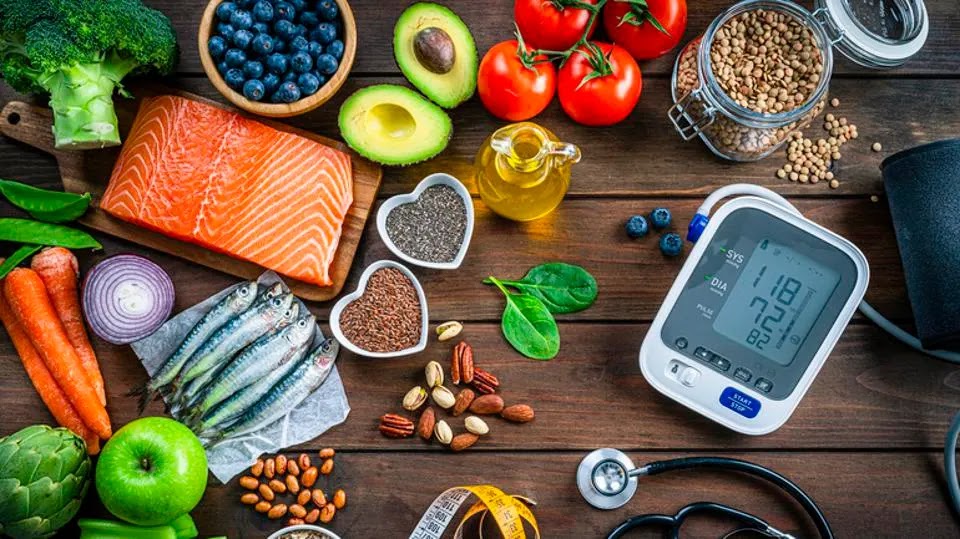Hypertension, often known as high blood pressure, is a common medical disease that, if ignored, can have major consequences. While medication and lifestyle changes are crucial for managing blood pressure, adopting a heart-healthy diet is equally important. Choosing the right foods can play a significant role in maintaining optimal blood pressure levels and promoting overall health.
In this blog post, we'll explore a variety of foods that can be beneficial for individuals dealing with high blood pressure.
1. Leafy Greens: The Power of Potassium
Leafy green vegetables, such as spinach, kale, and Swiss chard, are rich in potassium. Potassium helps balance sodium levels in the body, and a potassium-rich diet is associated with lower blood pressure. Incorporating a variety of leafy greens into your meals can be a delicious and effective way to boost your potassium intake.
2. Berries: Antioxidant-Rich Superstars
Berries, such as strawberries, blueberries, and raspberries, are packed with antioxidants called flavonoids. These substances have been connected to better control of blood pressure.
Berries are not only a tasty snack but also a versatile addition to cereals, yogurt, and smoothies.
3. Oats: The Heart-Healthy Whole Grain
Oats are a fantastic source of soluble fiber, known for its ability to help lower blood pressure. The soluble fiber in oats forms a gel-like substance in the digestive tract, which can bind to cholesterol and aid in its elimination. Start your day with a bowl of oatmeal topped with fresh fruit for a heart-healthy breakfast.
4. Fatty Fish: Omega-3s for Cardiovascular Health
Omega-3 fatty acids are abundant in fatty fish, such as trout, salmon, and mackerel.
These essential fats have been shown to reduce blood pressure and improve overall heart health. Aim to include fatty fish in your diet at least twice a week for a delicious and heart-protective boost.
5. Beets: Nature's Blood Pressure Regulator
Beets are a unique vegetable known for their high nitrate content. Nitrate is converted into nitric oxide in the body, a compound that helps relax blood vessels and improve blood flow, ultimately leading to lower blood pressure. Try adding roasted or boiled beets to salads or enjoy a refreshing beetroot juice.
6. Garlic: A Flavorful Blood Pressure Ally
Garlic has been recognized for its potential to lower blood pressure and improve heart health. Allicin, a compound found in garlic, may have blood pressure-lowering effects. Whether raw, cooked, or as a supplement, incorporating garlic into your diet can be a flavorful way to support cardiovascular well-being.
7. Bananas: Portable Potassium Boosters
Bananas are a convenient and potassium-rich fruit that can be easily incorporated into your daily diet. Potassium helps balance sodium levels and contributes to the regulation of blood pressure. Snack on a banana or add slices to your morning cereal or yogurt for a quick and heart-healthy treat.
8. Nuts and Seeds: Smart Snacking for Blood Pressure
Nuts and seeds, such as almonds, walnuts, flaxseeds, and chia seeds, are excellent sources of magnesium, potassium, and heart-healthy fats. These nutrients play crucial roles in supporting cardiovascular health and may help manage high blood pressure. Enjoy a handful of mixed nuts or sprinkle seeds on salads and yogurt for a nutrient-packed snack.
9. Low-Fat Dairy: Calcium for Cardiovascular Support
Low-fat dairy products like yogurt and milk are good sources of calcium, a mineral that plays a role in blood vessel contraction and relaxation. Including low-fat dairy in your diet can be a tasty way to ensure you're getting enough calcium for overall cardiovascular support.
While medication and lifestyle changes are essential components of managing high blood pressure, adopting a heart-healthy diet can significantly contribute to better cardiovascular health. The foods mentioned above are not only delicious but also packed with nutrients known to support lower blood pressure.
As always, it's crucial to consult with a healthcare professional for personalized advice and to monitor blood pressure regularly. Nourish your heart with these wholesome foods, and take proactive steps toward a healthier, more balanced life.
